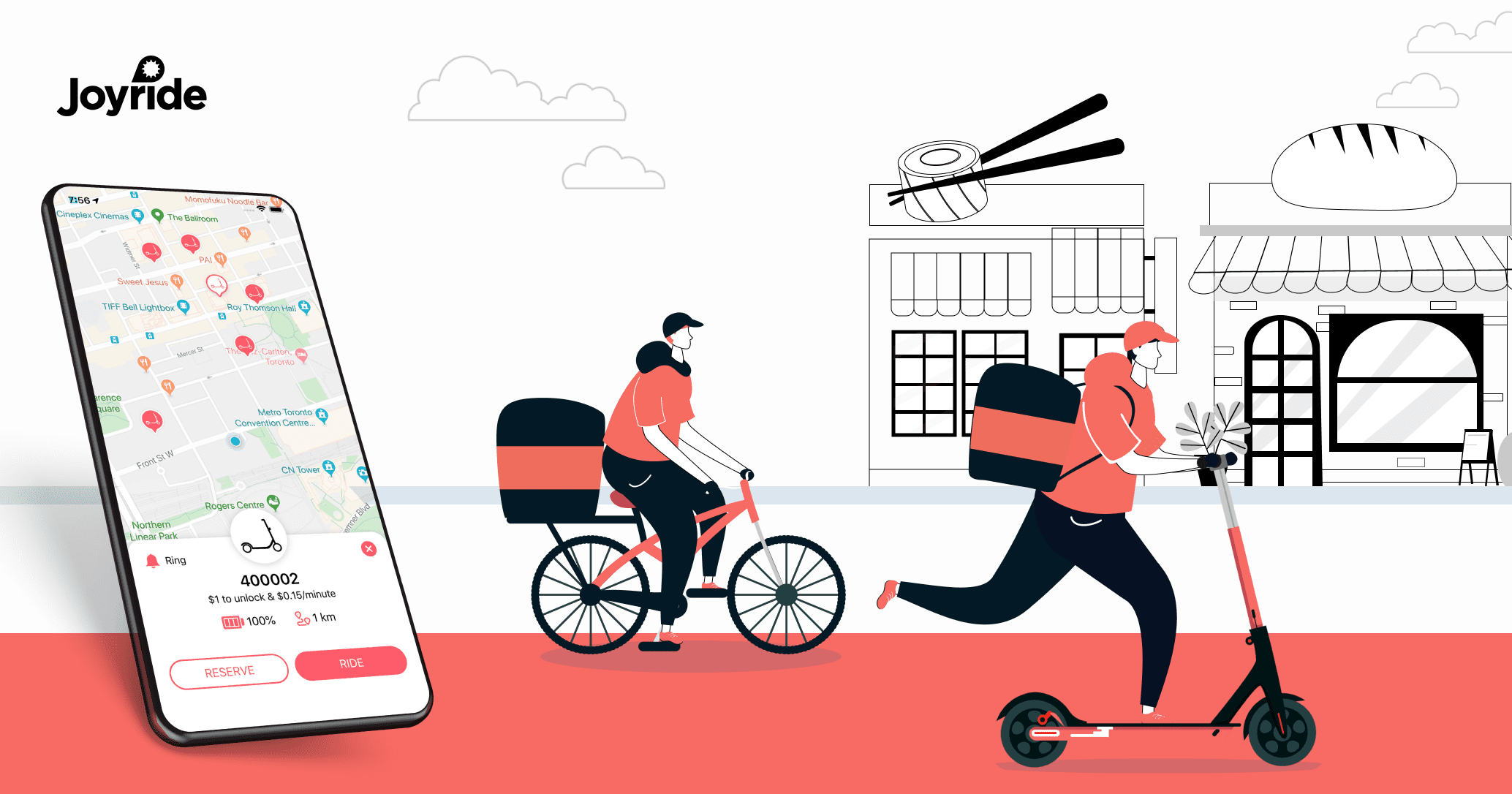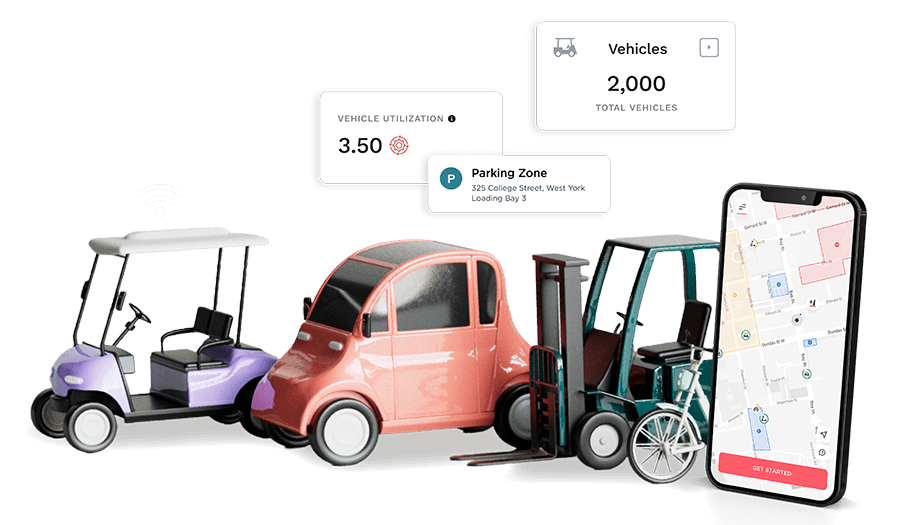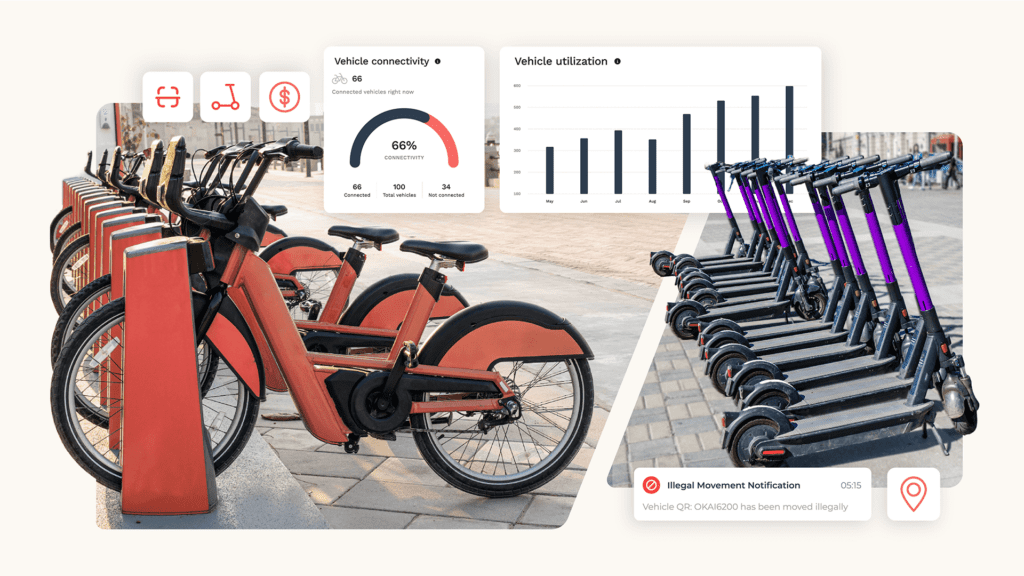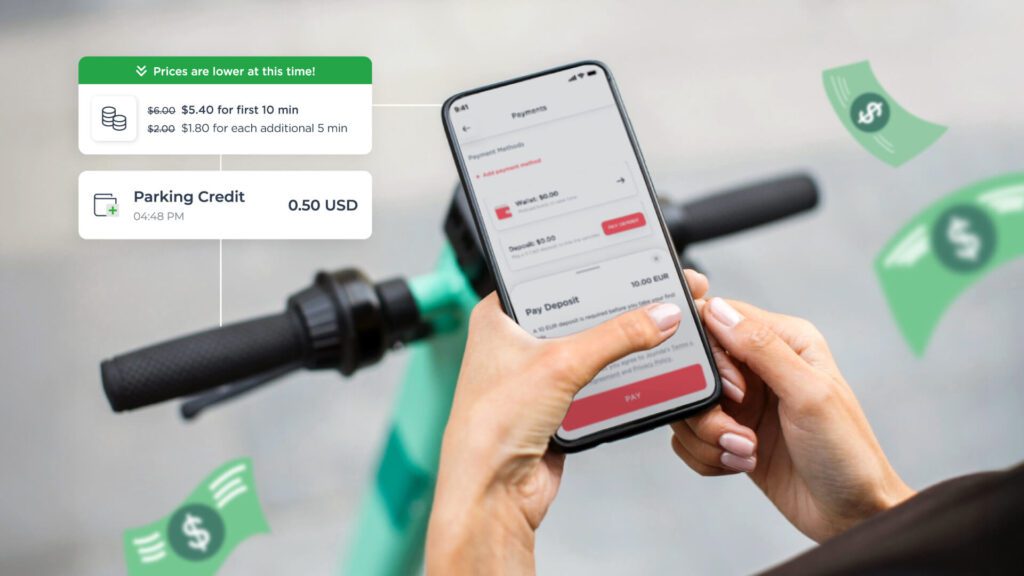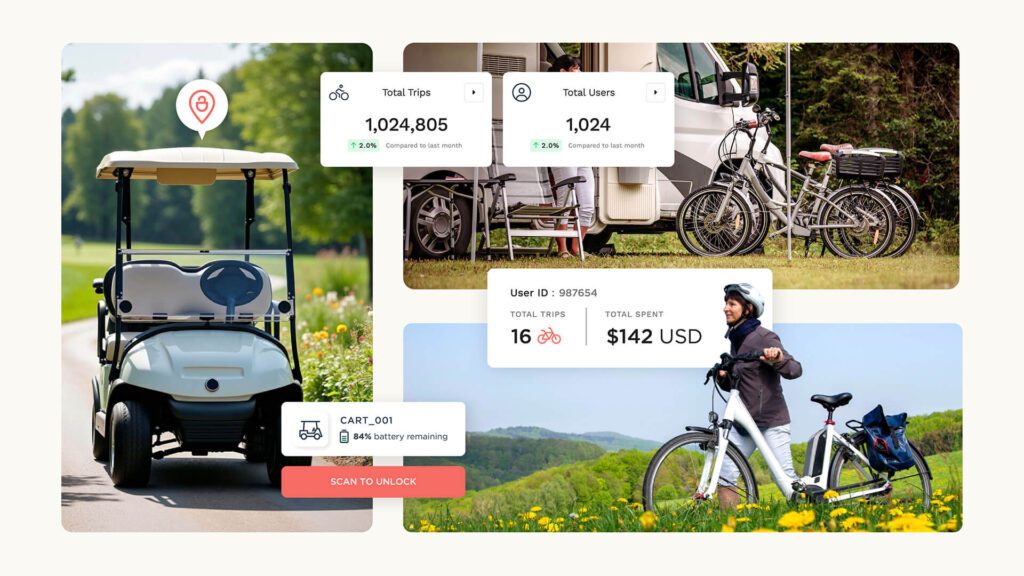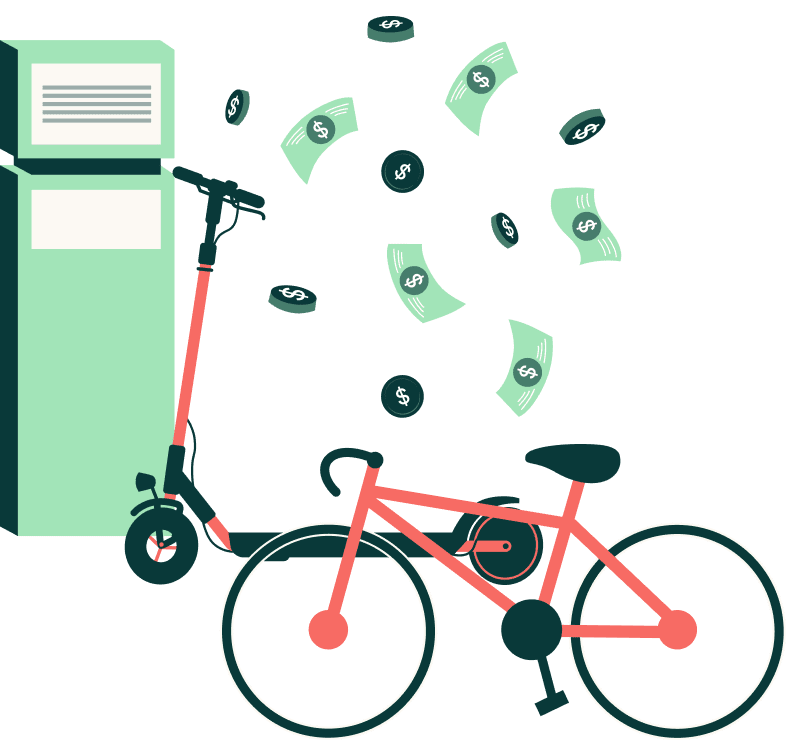There are a number of shared models to consider within the micromobility space, and oftentimes a hybrid of traditional public-sharing systems and private B2B schemes go hand in hand. The use of scooters, e-bikes, cargo bikes and mopeds for private delivery systems has gained significant attention over the past year, with the need for at-your-door service at an all-time high for consumers.
Food-delivery apps like DoorDash and Skip The Dishes have simplified the ordering process, and there’s no reason why the actual mode of delivery should be any different. As part of our private micromobility models blog series, we’re highlighting how to lease out vehicles as a third-party courier (or to third-party couriers) using Joyride’s software platform. Here’s your route to capturing consistently reliable revenue in four simple steps:
Step 1: Know your business model
Are you a current scooter or bike-sharing operator with a private or public system in place? Or are you a delivery/courier service looking to add a fleet of micromobility vehicles to your riders? Depending on your existing business model, you can either plan to lease your existing fleet of vehicles to independent contractors on an individual basis, or you may rent out an entire dedicated fleet of vehicles to an employee-based staff. The former has hustle incentives for gig workers and stability on payback for you as the operator, while the latter centralizes control and liability.
Step 2: Assemble your fleet the sustainable way
Sustainable deliveries are most often on the backs of mopeds, e-scooters, e-bikes and traditional bikes. Vehicle selection hinges a lot on your business model and location. For example, many downtown services are primed for scooter and e-bike deliveries due to the proximity of residents, limited car parking, ease of maneuverability across multiple infrastructures (roads, bike lanes, bike trails, etc.) and the increasing popularity of congestion zones with car tolls. Expect to see a huge influx of electric vehicles used specifically for delivery purposes over the next few years. In The Netherlands, which is celebrated for its exemplary biking infrastructure, at least 14 cities have announced they will allow only emission-free delivery vehicles after 2025. The Dutch government is giving delivery firms more than US$5,900 in financial incentives to buy or lease electric vehicles, which will save one megaton of CO2 every year by 2030. Additional regions are expected to follow, including a Boston-based e-cargo delivery pilot program slated for 2022, which means more opportunities for sustainable delivery models are going to go up alongside those food orders and online shopping bills.
Step 3: Customize your reservation app
Whether you’re a courier business, a restaurant or assembling your own fleet from the ground up, a white-label reservation system is an integral part of your business. All bikes, mopeds and scooters operating on Joyride’s software platform are tracked and monitored using GPS and geo-fencing parameters through our backend management system, which also allows vehicles to be leased individually or in clusters. Lease rates and date ranges may be set through our Joyride Keep long-term reservation platform, which enables operators to set daily, weekly or monthly rental systems per vehicle. You may also set customized payment rates for whatever rental time frequency your operating lease model dictates.
Step 4: Rent to riders…and repeat
Once your business model, vehicles, reservation app and backend management system are in place, it’s time to deliver the goods. If you’re renting to individual riders, a contract worker may pick up your vehicles at a central location, or you might personally have devices delivered on a recurring daily, weekly or monthly cadence. Under the centralized operational model, you can rent vehicles as part of a courier system where the staff of employees fulfills dedicated restaurant and consumer product deliveries. For example, last year food delivery giant Deliveroo struck a deal with electric moped rental company Elmovo, which rents out mopeds by the hour specifically to Deliveroo riders. The moped comes with all the cargo gear necessary as well as insurance. With Joyride’s turnkey solutions, your ability to sync hardware, software and fleet management with delivery services is just as within reach.
With more cities resorting to sustainable car-free solutions, the delivery industry is going the same way. Electric scooters and bikes are more cost-effective over the long term and help in reducing both noise and pollution. Find out more about delivery models and how our software is a driving force behind them by contacting us today for a deeper discussion.

